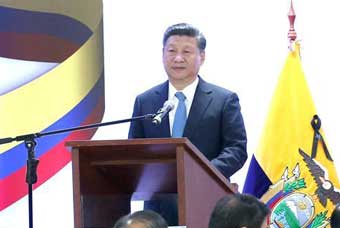BEIJING, Jan. 7 (Xinhua) -- China is planning to extend family doctor services to 30 percent of its urban population and 60 percent of priority groups in 2017, according a top health official.
In 2006, 22.2 percent of citizens and 38.8 percent of priority groups enjoyed contractual services from family doctors in cities that piloted the program, said Li Bin, head of the National Health and Family Planning Commission, during a national health conference.
Priority groups include seniors, pregnant women, children, the disabled, patients with chronic diseases such as hypertension, diabetes and tuberculosis, as well as those with severe mental disorders.
The program is key to establishing a tiered disease treatment system, which means different medical institutions receive different patients according to the severity of their illnesses, Li said.
The official called for efforts to ensure more convenient health services for residents who have signed contracts with family doctors, including easier transfer of patients with more advanced conditions to major hospitals as well as raising reimbursement ratios for medical expenses.
To attract more family doctors, the government will also adjust doctors' service fees, increase their income and provide more opportunities for their promotion and advancement, according to Li.
Family doctors, including general practitioners registered with grassroots health institutions, qualified doctors at township clinics and village doctors, provide basic medical care and other health services.














